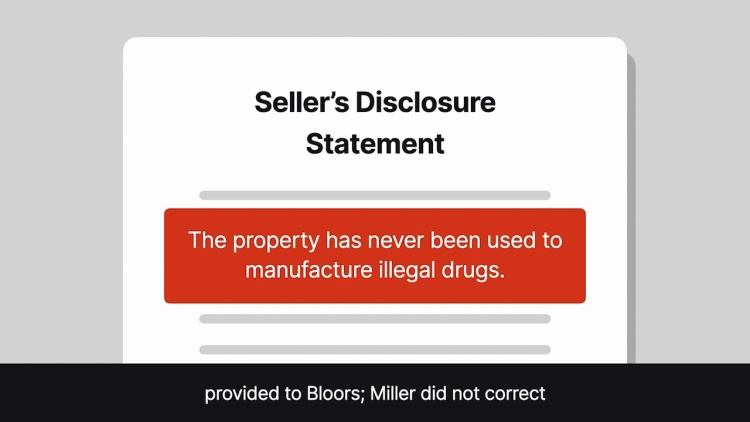Bloor v. Fritz
Washington Court of Appeals
143 Wash. App. 718, 180 P.3d 805 (2008)

- Written by Rich Walter, JD
Facts
Eddie Bloor and Eva Bloor (plaintiffs) sued Robert Fritz, Charmaine Fritz, and Lance Miller (defendants) for damages arising from the Bloor's purchase of the Fritzes' house. Miller was a real estate agent who represented both the Bloors and the Fritzes in the transaction. The trial evidence established that the Fritzes, through Miller's property-management firm, previously rented the house to tenants who used the house's back porch as an illegal meth lab, a fact that came to the Fritzes' and Miller's attention when police raided the property and arrested the tenants. The Fritzes decided to sell the house. The Bloors were an out-of-state couple who agreed to buy the house without knowing anything of its recent past. Soon after closing, the Bloors heard that their new property had a reputation as a drug house. Alarmed, the Bloors immediately contacted the local police and health departments for more information. The health department investigated, found traces of narcotic contaminants on the property, and forced the Bloors to vacate the house and relocate while a contractor decontaminated the property at the Bloors' expense. The trial court entered judgment against the Fritzes and Miller, and they appealed to the state appellate court. Before turning to Miller's appeal, the appellate court affirmed the trial court's judgment as to the Fritzes.
Rule of Law
Issue
Holding and Reasoning (Armstrong, J.)
What to do next…
Here's why 911,000 law students have relied on our case briefs:
- Written by law professors and practitioners, not other law students. 47,100 briefs, keyed to 997 casebooks. Top-notch customer support.
- The right amount of information, includes the facts, issues, rule of law, holding and reasoning, and any concurrences and dissents.
- Access in your classes, works on your mobile and tablet. Massive library of related video lessons and high quality multiple-choice questions.
- Easy to use, uniform format for every case brief. Written in plain English, not in legalese. Our briefs summarize and simplify; they don’t just repeat the court’s language.





